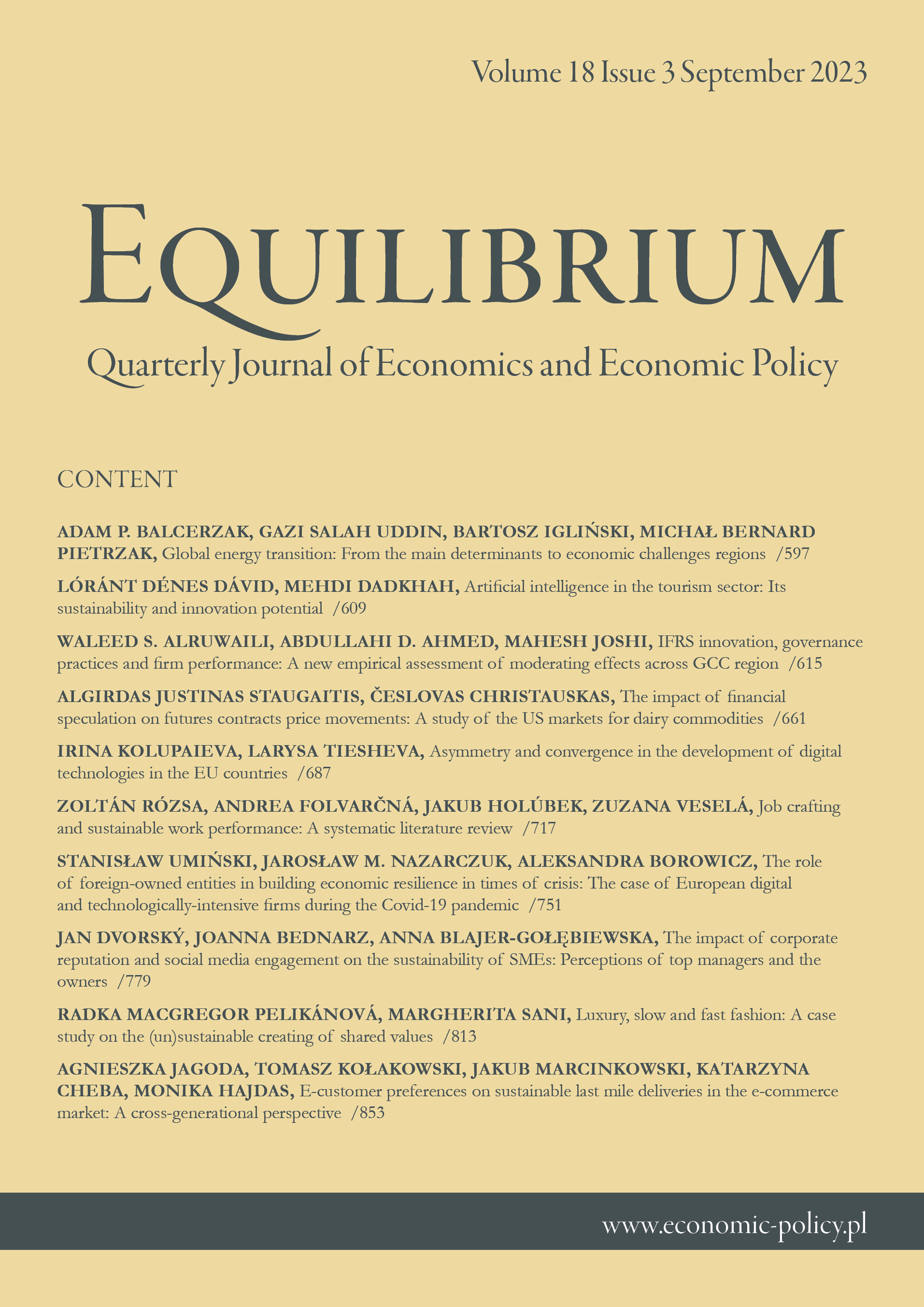Luxury, slow and fast fashion: A case study
on the (un)sustainable creating of shared values
Luxury, slow and fast fashion: A case study
on the (un)sustainable creating of shared values
Author(s): Radka MacGregor Pelikánová, Margherita SaniSubject(s): Supranational / Global Economy, Business Economy / Management, EU-Legislation
Published by: Instytut Badań Gospodarczych
Keywords: creating shared value (CSV); circular economy; EU law; fashion industry; sustainability;
Summary/Abstract: Research background: Since crises magnify differences and bring both challenges and opportunities, the current complex global setting makes the mutual interconnection a fundamental platform meant to create confidence and also to lead to a unique strategic advantage. Due to its inherent particularities, the fashion industry is a relevant sphere for performing a categorial reflective triangulation study about the understanding and employment of creating shared values (CSV) within the EU framework.Purpose of the article: The purpose of the article is to research, analyze and critically highlight how CSV is approached by archetypical fashion industry businesses from all three fundamental segments (luxury, fast, slow) and how this fits into the EU law framework.Methods: A categorial reflective triangulation study in four steps is performed while using a content analysis, empirical field observation, qualitative manual Delphi approach and critical juxtaposition with glossing and Socratic questioning. Firstly, 30 archetypical fashion industry businesses are identified and split into luxury, slow and fast fashion segments. Secondly, for each business, research is done on how it identifies its CSVs. Thirdly, the verification of these CSVs is performed in order to confirm or reject the genuineness. Fourthly, the results are projected into the EU framework.Findings & value added: Based on the performed study and its critical analysis, there appear extremely interesting dynamics in the CSV perception and strategies by luxury, slow and fast fashion businesses with a clear overlap in the EU sphere. In particular, fashion businesses from all three segments take into consideration sustainability and the fight against waste, but each segment has a different pro-CSV strategy to do so, and it is critical to contemplate which of these three strategies will become sustainable.
Journal: Equilibrium. Quarterly Journal of Economics and Economic Policy
- Issue Year: 18/2023
- Issue No: 3
- Page Range: 813-851
- Page Count: 39
- Language: English

